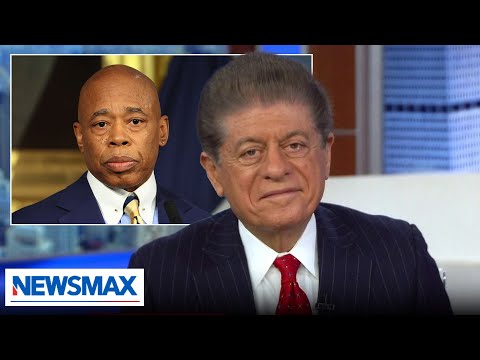In a surprising turn of events, a political case that seemed to be sailing smoothly has hit something of a speed bump. The courtroom drama began when a U.S. Attorney’s office instructed the federal court to drop charges against New York’s Mayor Eric Adams, who has been in the spotlight due to a public corruption case. Adams, who has been under scrutiny after being tied to a corruption investigation, pleaded not guilty to the charges and now faces a daunting maximum sentence of 45 years in prison. However, just when one might think the case was a sure-fire slam dunk for the prosecution, the plot thickened, leaving many scratching their heads.
Two months prior, the same lawyers who are now asking for the case to be dismissed had boasted that the evidence against Adams was overwhelming. The attorneys claimed to have a treasure chest of evidence and even more charges ready to go. However, now they are pivoting and suggesting the case should be dropped—or at least put on hold—due to its timing in relation to an upcoming mayoral race. This sudden change of heart raised eyebrows in the legal world, leaving many to wonder how a case that was previously deemed strong could now be sidelined due to political considerations.
The reasoning provided by the prosecution lines up like a curious riddle. They acknowledge that the charges may have been positioned to impact the local election, suggesting that the initial aim was perhaps more about shaping political outcomes than pursuing justice. This assertion has led to a tangled web of allegations, where the defense claims that politics motivated the charges in the first place. It makes for an interesting debate—was it all about the law, or was there a dance of political maneuvering unfolding in the courtroom?
To make matters even stickier, the acting Deputy Attorney General hinted that the government might wish to return to the case after the election dust settles, which is an unusual move in legal proceedings, especially in a public corruption case. Typically, once charges are brought forward, the expectation is for a fair trial to unfold—not for attorneys to hit pause while the political landscape shifts. This unusual tactic is leading skeptics to wonder if there’s more behind the curtain than meets the eye, particularly since one of Adams’ staffers has already pleaded guilty, showcasing a serious legal commitment that shouldn’t be taken lightly.
As the gears of justice turn, the federal judge now faces a critical decision. If the judge denies the motion to dismiss, the case could not only soldier on but also give rise to further complications. A judge’s skepticism could lead to some awkward conversations in court, where questions of honesty and integrity may dance across the benches. Overall, the whole situation has unfolded like a suspenseful soap opera, full of political intrigue. For now, all eyes will be on the courtroom and the potential fallout from this unprecedented legal drama, wondering if it will all come down to the whims of the elections in the Big Apple.



